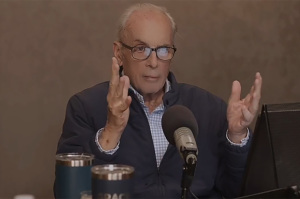Scientist Coalition Accused of 'Suppressing' Evidence Against Darwinism
While the 21st Century Science Coalition may sound like it's on the cutting edge of scientific innovation, at least one of its critics argues otherwise.
"The 21st Century Science Coalition has the wrong name," says Dr. John G. West, Vice President for Public Policy and Legal Affairs at the Discovery Institute's Center for Science and Culture.
"It should be dubbed the '19th Century Science Coalition,' because it wants to turn the clock back to the 19th century by suppressing recent scientific evidence challenging Darwinism from fields like biochemistry, bioinformatics, microbiology, and paleontology," he told The Christian Post in response to the coalition's recruitment of more than 800 supporters from the scientific community in Texas.
Last week, the 21st Century Science Coalition warned the State Board of Education not to inject politics or religion into new science guidelines for public schools, worried that social conservatives on the 15-member board will insist that public schools teach the "weaknesses of evolution." The board plans to adopt new science curriculum standards next year.
Under the current standards for the state's science curriculum, students are expected to "analyze, review, and critique scientific explanations, including hypotheses and theories, as to their strengths and weaknesses using scientific evidence and information."
The 21st Century Science Coalition alleges, however, that the references to "strengths and weaknesses" have been used by politicians "to introduce supernatural explanations into science courses."
Such explanations include concepts like Intelligent Design, which holds that some aspects of nature are so complex that they could not have come about randomly but point to an intelligent designer.
To date, over 800 scientists in Texas have signed the coalition's statement to "encourage valid critical thinking and scientific reasoning by leaving out all references to 'strengths and weaknesses.'"
"A strong science curriculum is an essential part of a 21st-century education and should be based on established peer-reviewed empirical research," states the introduction to the statement titled "Scientists for a Responsible Curriculum in Texas Public Schools."
In addition to asserting that scientifically sound curriculum standards must "make clear that evolution is an easily observable phenomenon that has been documented beyond any reasonable doubt," supporters of the statement say standards must "recognize that all students are best served when matters of faith are left to families and houses of worship."
West, however, insists that no one is proposing to teach religion in biology classes in Texas.
"The claim about religion is simply a smoke screen to cover up the effort by Darwinists to impose an ideological litmus test on science education in Texas," he said.
"What [backers of the current curriculum] want is for students to hear about the scientific (not religious) evidence for and against Darwinism."
Furthermore, West says Darwinists are the ones who are truly trying to undermine good science education by turning it into a form of indoctrination.
"Examining the strengths and weaknesses of scientific explanations and theories is a critical part of good science education," he insisted. "Science educators disserve students if they fail to introduce them to all of the relevant scientific evidence and help them critically analyze that evidence."
According to reports, the State Board of Education will begin discussing the proposed new standards this fall and have tentatively set a deadline of March 2009 for final adoption. In 2011, the state is scheduled to adopt new science textbooks, which are created by publishers using the state's curriculum standards.
In addition to the 21st Century Science Coalition, other critics of the current curriculum include Texas Freedom Network, a group that has opposed state proposals for Bible classes and Bible textbooks in the past. The network is currently spearheading the "Stand Up for Science" campaign, which accuses creationists on the State Board of Education of "working to undermine instruction on evolution in science classes."





























